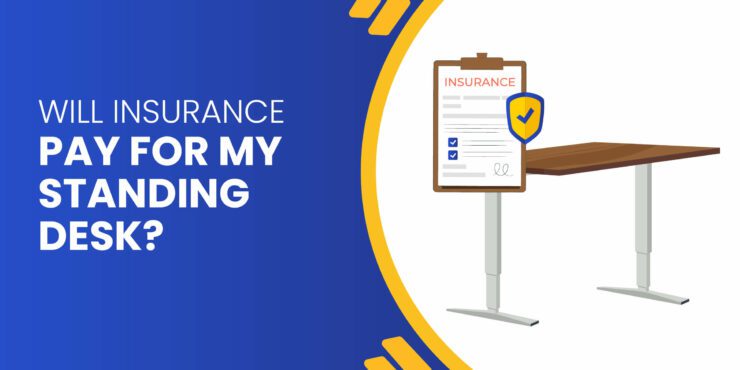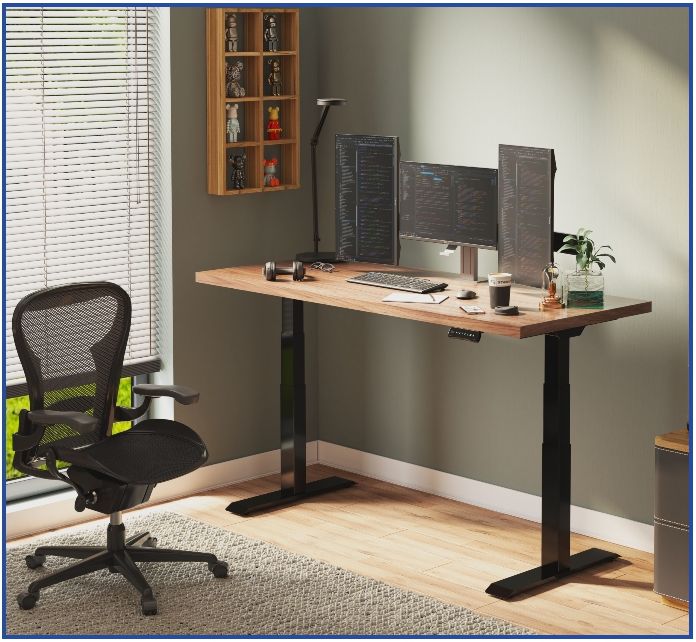Everyone on our team who has a standing desk will tell you personally that it’s made a positive impact on our health and comfort.
It’s a pricey investment upfront, sure, but it pays off in the long term.
But for some people, insurance might help front the bill.
If you have the right insurance plan and check a few boxes, the answer is yes, insurance might pay for your standing desk!
Here’s why.
We offer this website completely free to our visitors. To help pay the bills, we’ll often (but not always) set up affiliate relationships with the top providers after selecting our favorites. However, we do our best not to let this impact our choices. There are plenty of high-paying companies we’ve turned down because we didn’t like their product.
An added benefit of our relationships is that we always try to negotiate exclusive discounts for our visitors.
Main Takeaways
- Some insurers may cover standing desks partially or fully, requiring a doctor's or chiropractor’s note.
- Conditions like chronic back pain, joint pain, and high blood pressure can qualify for coverage.
- A letter from a healthcare professional is necessary to confirm the medical need for a standing desk.
- FSA and HSA funds can be used for standing desks with a medical necessity letter, following IRS guidelines.
Insurance Coverage for Standing Desks
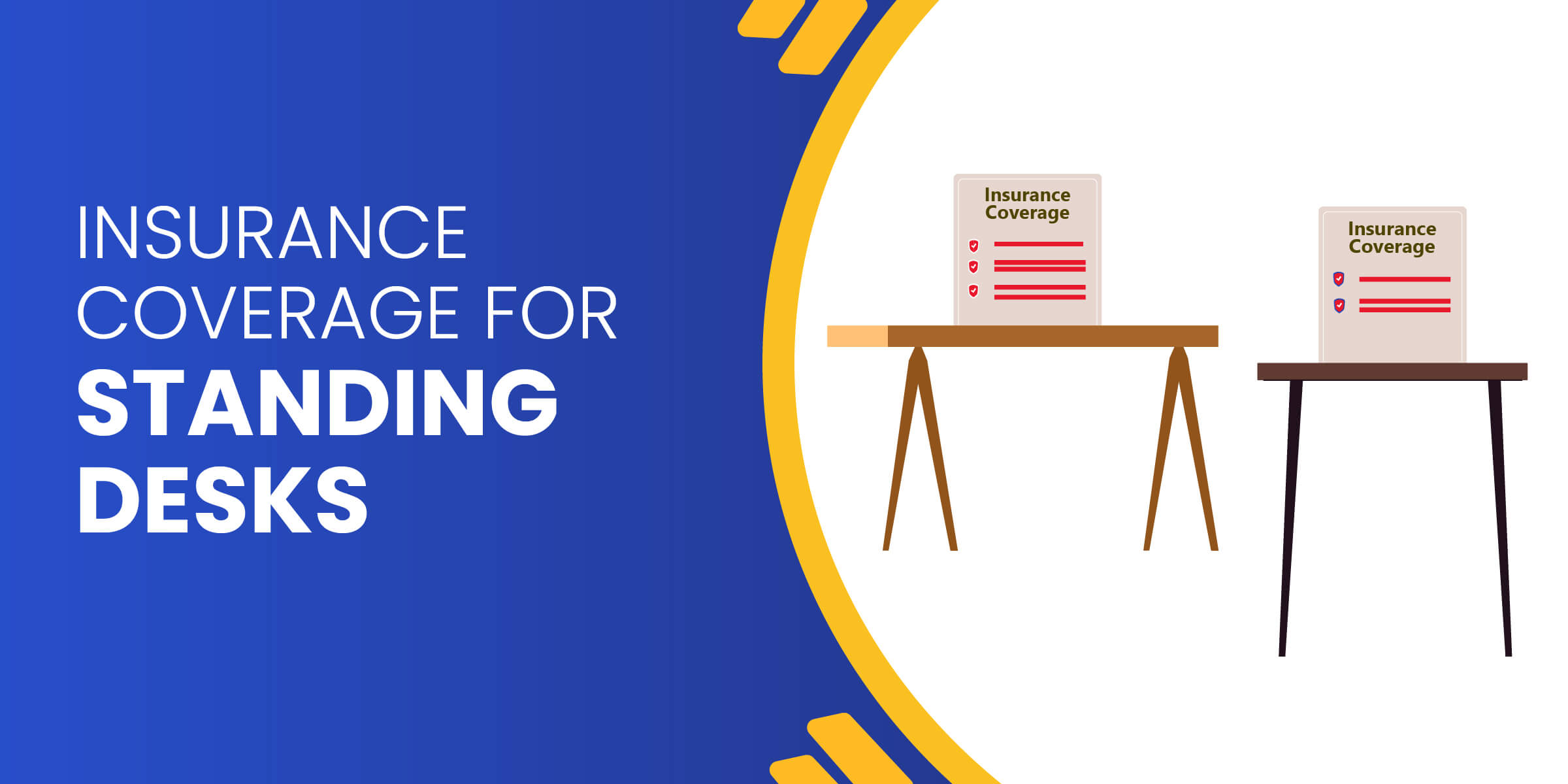

Yes, some health insurance companies do cover standing desks to some degree with a doctor's or chiropractor’s note. How much they cover depends on your insurance plan. So, while some companies will reimburse individuals for the full price of the desk, some will reimburse part of it.
Since it largely depends on which insurance company you have, you will first need to reach out to your insurance provider and ask them directly whether they reimburse for standing desks or not. For instance, UnitedHealthcare does not reimburse clients for standing desks.
If your insurance provider does cover standing desks, you will likely need a prescription from a doctor or chiropractor to have your purchase reimbursed by insurance.
This “prescription” is called a letter of medical necessity or LMN.
How It Works
- Once you have this letter, you’ll need to call your insurance provider and inquire about coverage for “durable medical equipment.”
- If they confirm that they do cover this, they’ll likely send you a list of approved vendors.
- From there, you’ll order your desk, then send over an invoice for your standing desk along with your letter of medical necessity.
- The insurance company will reimburse you for part of the price of your purchase (usually around 80% of the total price.)
Medical Conditions and Standing Desk Coverage
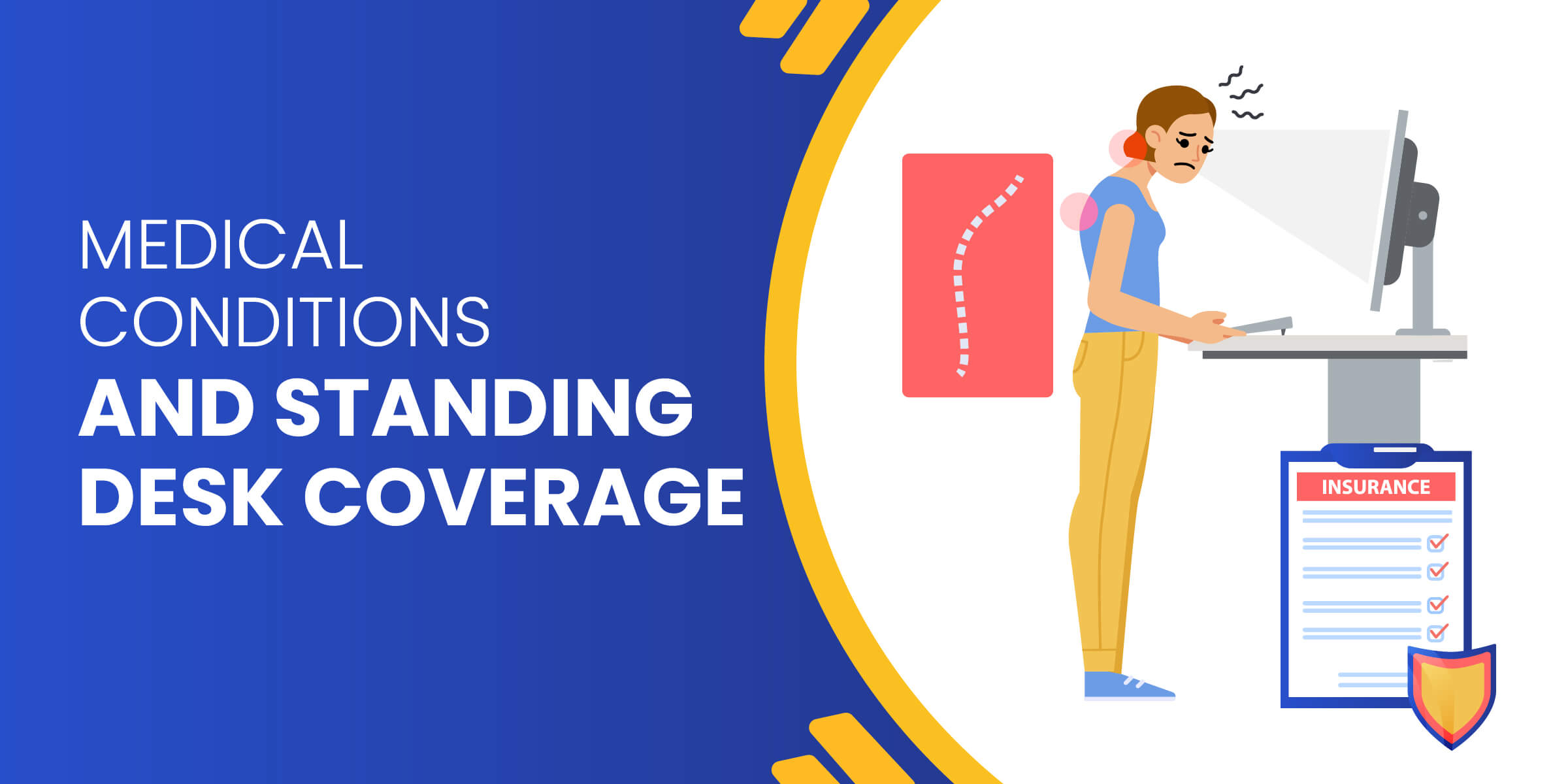

Certain medical conditions might qualify an individual for insurance coverage of a standing desk, including conditions like chronic back pain, joint pain, and high blood pressure.
A few of the common reasons individuals may need a standing desk include:
- Chronic back pain
- Joint pain
- Headaches
- Neck pain
- Poor circulation
- High blood pressure
- Edema of lower extremities
A large part of what goes into deciding whether or not a standing desk is a medical necessity is tied to the Americans with Disabilities Act (ADA). The ADA protects Americans with disabilities' right to employment by requiring employers to provide “reasonable accommodations” that are necessary for them to perform work tasks.
Employers can request medical documentation that states why a standing desk would be necessary for the employee to complete their work. However, it’s not guaranteed that the company will grant particular accommodation to every employee who requests it.
Obtaining a Letter of Medical Necessity for a Standing Desk
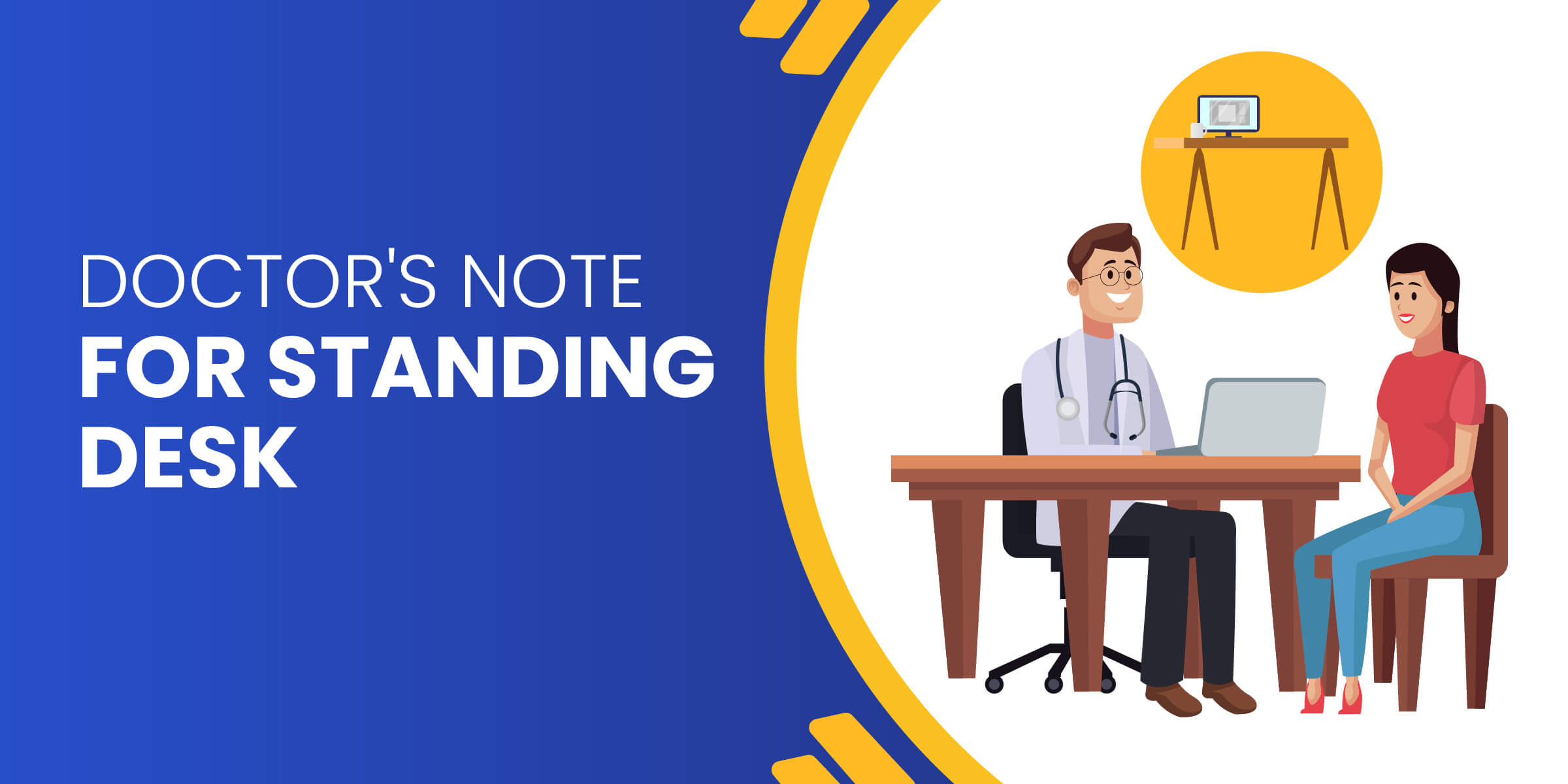

A letter of medical necessity is a note written by a medical professional that states you need a standing desk for medical purposes. This type of letter is often required to have your health insurance company reimburse you for your standing desk. It shows that a medical professional agrees that you need a standing desk for medical purposes.
Some of the medical professionals who can write these types of letters include:
- Doctors
- Chiropractors
- Physical therapists
- Occupational therapists
- Registered nurses
To get a doctor’s note for a standing desk, simply set up an appointment with them. During your visit, ask if they would be willing to write a prescription, or letter of medical necessity, detailing why you need a standing desk as an accommodation.
Health Savings Account (HSA) and Flexible Spending Account (FSA) Options


Some FSA and HSA accounts will allow you to use these funds to purchase standing desks, provided that certain requirements are met.
The IRS guidelines for FSA and HSA expenditures require that medical expenses be primarily for the prevention or alleviation of a physical or mental defect or illness. This means you’ll have to prove that a standing desk is a medical necessity before they will let you use FSA or HSA funds on one. Usually, a letter of medical necessity from a medical professional is valid proof.
- Whether you want to use your HSA or FSA funds for the purchase, the first step will be talking to your doctor about how having a regular seated desk is impacting your health.
- Then, check and see if a standing desk is included on your personal account’s list of qualified purchases.
- Once you’ve confirmed your eligibility, you’ll use either your FSA or HSA card if the retailer accepts these forms of payment.
- If not, you will have to pay out-of-pocket for the purchase and can submit purchase information, including receipts and your LMN to the FSA or HSA administrator for reimbursement.
- Always keep your records in case the IRS needs to look at them.
The key differences between using your FSA and HSA are:
- Roll-Over Rules: FSA funds generally need to be used within the plan year (with some plans offering a grace period or a small rollover). HSA funds roll over indefinitely.
- Ownership and Portability: HSAs are individually owned and remain with you even if you change jobs. FSAs are employer-owned and are usually lost if you leave the job.
- Contribution Limits and Tax Treatment: HSAs and FSAs have different annual contribution limits and tax treatments.
What Is the Best Standing Desk?


The best standing desk is the one that is within your budget and suits your aesthetics, needs, and space limitations.
That being said, we’ve tested many (MANY) standing desks and our personal favorite is the Flexispot E7.
It’s right in the middle price-wise and offers a great range of finishes to fit any aesthetic. It’s also super quiet and easy to operate, with memory settings so you can switch between your optimum standing and sitting heights at the push of a button.
Check out our Flexispot E7 review for more information (and a special discount code!)
FlexiSpot E7 Standing Desk - Why We Recommend
- Extra stability & weight capacity (see what it can do in our video)
- More sizes, tabletops, and shapes available (like the curved front for an ergonomic fit)
- LED touch screen
- Child lock
- 15-Year warranty
You can also check out our roundup of the best standing desks in each category.
Frequently Asked Questions
Can I ask my job for a standing desk?
Yes, you can ask your job for a standing desk. While some employers will offer you one whether or not you need them as an accommodation, others will only provide them for employees who have a medical need for one.
Do physical therapists recommend standing desks?
Yes, physical therapists recommend standing desks, as sitting all day is not good for your health and using a standing desk can improve posture.
Can I get a prescription for a standing desk?
Yes, you can get a prescription for a standing desk.
Is a standing desk covered by HSA?
Yes, sometimes a standing desk is covered by HSA (you should always check with your provider) and you can also sometimes purchase one and get reimbursed by your insurance company.
Is a standing desk a medical expense?
Yes, a standing desk can be considered a medical expense and is reimbursable with some health insurance plans.
How do I get a doctor's note for a standing desk?
To get a doctor’s note for a standing desk, simply set up an appointment with them and ask if they would be willing to write a prescription, or letter of medical necessity, detailing why you need a standing desk as an accommodation.
Is a standing desk a tax write-off?
If you are self-employed or a small business, you can count your standing desk as a tax write-off because it’s considered a business expense.














